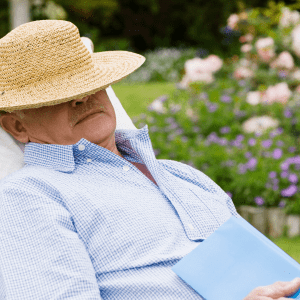How much sleep do we really need?

The science suggests:
- 9-11 hours for school children;
- 8-10 hours for teenagers;
- 7-9 hours for adults;
Why is it important?
- To solidify and consolidate memory;
- Removal of toxic by-products from the brain – this occurs via the brain’s glymphatic (waste clearance) system;
- For cellular restoration; muscle repair, protein synthesis, tissue growth;
- To synthesize hormones;
- For the regulation of blood glucose;
- For immunity, for example cytokine production.
What may be signs you are not getting enough sleep?
- Poor focus and concentration;
- Mood fluctuation – during sleep, brain activity increases in areas that regulate emotion such as the amygdala. The amygdala is in charge of the flight/fight fear response and in sleep-deprived individuals it has been shown to overreact;
- Poor memory;
- Weight gain – a lack of it elevates ghrelin (appetite hormone) and decreases leptin (satiety hormone). This imbalance makes you hungrier which increases the risk of weight gain;
- Reduced athletic performance;
- Insulin resistance – insulin is a hormone that helps your cells use glucose for energy. Insulin resistance therefore leads to high blood glucose levels (a precursor to type 2 diabetes). A lack of sleep appears to affect the health of the cells in the pancreas where insulin is made and released;
- Low libido;
- Susceptibility to illness – cytokines are proteins that fight infection and inflammation. Building good sleep habits;
- Timing – establish a regular sleep-wake cycle by going to bed and waking up at the same time every day (even weekends when possible!);
- Routine – for example a warm bath and reading a chapter of a book before bed. Minimise exposure to artificial light (no screen time) at least one hour before you are due to go to sleep, and try not to exercise too close to bedtime;
- Avoid stimulants – reduce intake of caffeine, alcohol, (and sadly chocolate) as they can disrupt sleep quality as well and quantity;
- Comfort – Consider the comfort of your mattress and pillow. Other considerations could be room temperature (cooler is generally better than warmer), darkness (black-out blinds/curtains), and noise (earplugs?);
- Switch off – keep a journal by your bedside to write down thoughts that are keeping you awake. You could also try meditation; ‘headspace’ is an excellent app.
Book in for an appointment with one of the Richards team to see if they can help.
Read our blog on here to know how mindfulness and sleep are linked.
For more info and advice, join us over on our Facebook Page!

